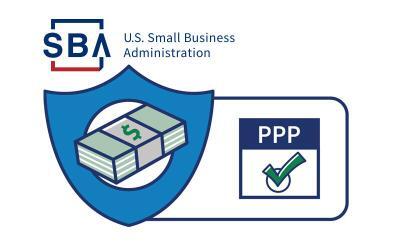Business owners are constantly moving. Whether it’s tracking new trends, operating the shop, meeting with clients, or attending networking events, you’d think there can’t be one more thing to add to their plates. And then, COVID-19 hit. As business owners ourselves, we saw a new kind of busy that was one of pivoting to meet new demands in a time of crisis.
Pivoting business focus is not something unique to the time of coronavirus. Being able to quickly change or redirect a business is one of the hallmarks of entrepreneurship. Fortunately, smart business owners are excellent “pivoteurs,” able to recognize change and meet it head-on with ingenuity and adaptability.
Meet some enterprising entrepreneurs who smartly pivoted their businesses in the midst of COVID-19.
Pivoting Products and Services
Back in March, when federal and many state governments decided only “essential” businesses could remain open to the public, businesses across the world had to make significant changes to survive. Distilleries such as Traverse City Whiskey and Mammoth Distilling in Michigan quickly redirected their efforts to making hand sanitizer and transformed their tasting rooms into quick service sanitizer refill stations. Likewise, when Milwaukee Food & City Tours, was suddenly prohibited from loading up busloads of visitors to tour Milwaukee, the company pivoted to create and deliver boxes of care packages to local customers’ doors.
Pivoting in the time of coronavirus is often temporary. Got Print quickly shifted from printing signage for trade shows to making signs for businesses about closures, social distancing, and new hours of business and is now pivoting again to print reopening signage.
Of course, it helps to have good relationships with your suppliers, manufacturing, and design teams. Even if you’re ready to pivot your efforts, if you can’t find the support, your ideas will go nowhere. If anything, this crisis has taught business owners to be prepared for anything. Be sure to check with your city’s business development office and industry experts for any new permits or business licenses you may need to produce alternate products.
Pivoting to Online
Once social distancing guidelines were put in place, smart business owners knew they needed to come up with virtual experiences immediately—not only to keep some kind of revenue coming in, but also to keep customers engaged and loyal. When Mika Leah, founder of corporate wellness company Goomi Group, could no longer supply her clients with onsite classes, she quickly pivoted to delivering classes virtually. Goomi now offers everything from cooking classes to meditation online as well as in-person when people return to their offices.
Maine Alpaca Experience was forced to close its farm and retail stores due to COVID-19, but the owners didn’t want to stop showcasing the animals to current customers and new fans. The farm owners created virtual tours to show their 35 alpacas grazing and just hanging out in the barn and pasture.
More and more consumers discovered the convenience and simple usability of virtual meeting platforms when safer-at-home orders were put in place. Zoom, a leader in video conferencing, saw its numbers skyrocket from 10 million daily meeting participants in December 2019 to 300 million in April 2020. To top it off, video technology has come a long way in terms of user-friendliness, making it a no-brainer for businesses to rely on. Professional businesses such as doctors, attorneys, and accountants have added virtual consulting sessions to their services as well. And going forward the continued use of video conferencing, instead of traveling, will help small businesses save money so this is likely to be a permanent pivot.
Pivoting to a Virtual Business
For some businesses, working remotely will become a permanent part of their operations. According to a survey by Gartner, 74 percent of businesses surveyed expect some of their employees who were forced to work from home because of the pandemic to continue working remotely after the pandemic ends.
And then there are those businesses for which working virtually will be the only option. Before the virus crisis, Dave and Stacy Dockins owned and operated three Yoga Project studios in the Forth Worth, Texas area. Because they were not eligible to get PPP funding since most of their employees were independent contractors, the couple made the difficult decision to close their studios and become an online business only. The Dockins and some of their staff will teach yoga (and also instructor training courses) exclusively through a virtual class format.
For businesses like the Dockins’ making the move to online not only substantially cuts down on operating costs, it also can broaden your audience since your reach is literally global. The key is how you market the virtual business, making sure your business gets lots of traffic through both organic and paid SEO tactics. Be sure to post frequently across all your social media channels, email past customers with discount incentives to bring them aboard virtually and ask happy customers to spread the word to friends.
Lots of businesses are rethinking the need for an office. Twitter told its employees they could continue to work remotely permanently. Many other tech companies followed suit. If you had no problems with working remotely during the safer-at-home months, consider making the switch on a permanent basis, which will save you money and likely increase employee productivity.
Pivoting Delivery Options
People always have to eat. Couple that with the shortage of supplies and long lines to get into the grocery stores made restaurant pickup and delivery a happy alternative for hungry patrons. Restaurants big and small around the world shifted from in-person dining to carry-out and delivery with impressive results.
As of May, statistics show:
- 51% of consumers have downloaded at least one new app to purchase food and essentials since the onset of COVID-19
- The average online ordering check size is 23% larger than in-store checks
- 33% of consumers say they’re getting more takeout than before the pandemic
- 50% of Gen Z consumers are willing to try out a new restaurant if curbside pickup is an option
- During this health crisis, grocery delivery apps are in demand more than ever, with daily downloads surging by up to 218% for companies like Instacart, Walmart Grocery and Shipt
So how can restaurants pivot to the still-growing popularity of off-premise dining? Try these tips from MustHaveMenus’ “Coronavirus Response Kit”:
- Create a takeout-specific menu of your most popular items.
- Institute an efficient ordering system, whether that’s ordering by phone, email, text, or website. Also, make sure you give customers an expected pickup/delivery time and ask if that works for them.
- Offer curbside pickup (some customers may actually want to get out of the house!)
- Offer grab-and-go products for customers who want to see their options.
- Decide on self-delivery or working with a third-party delivery company. Weigh the costs of using current employees or outsourcing.
- Prioritize sanitation and limit how many people come in contact with the food.
- Communicate the options of food takeout on social media, your website, Yelp, etc.
Executing a successful pivot takes careful planning, but also the ability to be flexible, patient, and willing to cooperate with vendors, suppliers, employees, and customers. Remember to spread the word of any changes in your business no matter how small or seemingly insignificant. Your customers are watching to see how your business is ready to meet any crisis head-on.
We’re Here to Help Your Pivot!
As a business-to-business company, here at CorpNet we are used to pivoting and innovating to meet our customers’ changing needs. When virus-related solutions were needed, our team pivoted to provide informative articles on everything from funding relief to how to safely reopen. We also redirected our efforts to help customers with the Economic Injury Disaster Loan (EIDL) and Paycheck Protection Program (PPP) applications.
We’re here to help. If you need to set up a new LLC or create a DBA, we can help make that happen so you can focus on pivoting your business and staying focused on serving your customers.





